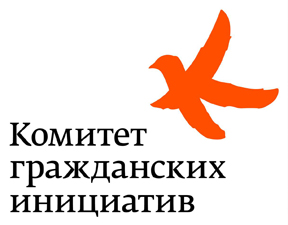 At present, the implementation of fiscal policy at the regional and municipal levels is the prerogative of the executive and, in part, of the legislature. The influence of citizens on the budgeting process is limited to public hearings of the budget, which often do not provide opportunities for interaction between government and society. This is mainly due to the lack of information available and understandable to all citizens about the budgeting process and the conviction of citizens that it is impossible to influence the budget policy. The lack of citizens' interest and adequate feedback between the government and the population is the main characteristic of the current situation.
At present, the implementation of fiscal policy at the regional and municipal levels is the prerogative of the executive and, in part, of the legislature. The influence of citizens on the budgeting process is limited to public hearings of the budget, which often do not provide opportunities for interaction between government and society. This is mainly due to the lack of information available and understandable to all citizens about the budgeting process and the conviction of citizens that it is impossible to influence the budget policy. The lack of citizens' interest and adequate feedback between the government and the population is the main characteristic of the current situation.
This situation gives rise to alienation and mistrust of citizens in relation to the budgeting policy pursued by regional and municipal authorities, which leads to an increase in tension in the region or at a given municipality.
Participatory budgeting (hereinafter - PB) is intended to expand the scope of citizen participation in the budgeting process by involving them in the work of special commissions (consisting of citizens and representatives of the municipality) involved in the distribution of funds allocated to them. In other words, the joint commission decides how and where to spend a certain amount of money within the municipality. Of course, we are talking only about those budgeting decisions in which the opinion of citizens can be taken into account. The immediate process of PB includes the following components:
- Discussion of a specially allocated part of the budget or externally raised funds (in most cases - up to 5% of the municipal budget);
- Necessary participation in the process of municipal and city administration;
- Frequency of discussions (PB cannot be limited to one meeting at which all opinions of the parties cannot be considered);
- Deliberative procedures in the form of special meetings, forums or trainings should be included in the PB process (to provide citizens with information on how and where the budget is spent, and to teach them the basics of the budget process);
- Necessary follow-up reporting on budget expenditures submitted for discussion on the PB model.
The PB methodology was developed by the Res Publica center at EUSP with the support of the Kudrin Foundation for Supporting Civil Initiatives in 2012. In accordance with EUSP methodology, the goal of PB - the involvement of citizens in the budgeting process through the implementation of initiatives put forward by themselves, with the obligatory participation of other citizens in project elaboration - is ensured in the form of budgetary commissions of 20-50 members selected by lot. It ensures the direct and equal access of citizens to participation in such programs. Budget commissions are engaged in the discussion and further elaboration of citizens' initiatives together with officials and experts. This shapes the core of "professional citizens". These "professional citizens" go through trainings on the budgeting process, government procurement, urban development, municipal government and various other topics. Final projects are selected by vote of the budget committee and implemented by the municipality.
Participatory budgeting projects were launched by the Kudrin Foundation for Supporting Civil Initiatives and the European University at St. Petersburg together with the administrations of cities and towns in early 2014 after the successful experience of pilot projects in Cherepovets and Sosnovy Bor in 2013. Cherepovets (Vologda Region), Sosnovy Bor (Leningrad Region), Urzhum, Omutninsk, and Mirny (Kirov Region) participated in the project in 2014. The project in the Kirov region grew to include 10 settlements which are selected annually through a competition.
The methodology of participatory budgeting developed by EUSP reached a new level in 2015 with the start of the project "Your Budget" in St. Petersburg. This is Russia's first instance of implementing such programs in a federal city. The project "Your Budget" started from two districts in 2016 (Vasileostrovsky and Central), in 2017 their number increased to five (Admiralteisky, Vasileostrovsky, Moskovsky, Petrogradsky, Central), in 2018 the scope of the project included the whole city for the first time.
In total, more than 400 million rubles were distributed for over 80 citizen initiatives. In St. Petersburg, 160 million rubles will be distributed over three years.
BOOKLET ON PARTICIPATORY BUDGETING (IN RUSSIAN)